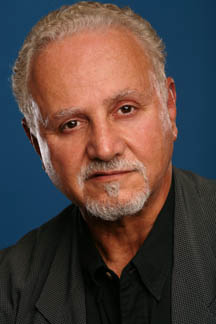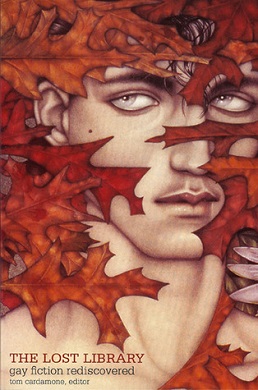Related Research Articles

Eileen Mary Challans, known by her pen name Mary Renault, was an English writer best known for her historical novels set in ancient Greece.

Joe William Haldeman is an American science fiction author. He is best known for his novel The Forever War (1974). That novel and other works, including The Hemingway Hoax (1991) and Forever Peace (1997), have won science fiction awards, including the Hugo Award and Nebula Award. He was awarded the SFWA Grand Master for career achievements. In 2012 he was inducted as a member of the Science Fiction Hall of Fame. Many of Haldeman's works, including his debut novel War Year and his second novel The Forever War, were inspired by his experiences in the Vietnam War. Wounded in combat, he struggled to adjust to civilian life after returning home. From 1983 to 2014, he was a professor teaching writing at the Massachusetts Institute of Technology (MIT).

Lambda Literary Awards, also known as the "Lammys", are awarded yearly by Lambda Literary to recognize the crucial role LGBTQ writers play in shaping the world. The Lammys celebrate the very best in LGBTQ literature. The awards were instituted in 1989.

Edmund Valentine White III is an American novelist, memoirist, playwright, biographer and an essayist on literary and social topics. Since 1999 he has been a professor at Princeton University. France made him Chevalier de l'Ordre des Arts et des Lettres in 1993.

Gay literature is a collective term for literature produced by or for the gay community which involves characters, plot lines, and/or themes portraying male homosexual behavior.
LGBT themes in horror fiction refers to sexuality in horror fiction that can often focus on LGBTQ+ characters and themes within various forms of media. It may deal with characters who are coded as or who are openly LGBTQ+, or it may deal with themes or plots that are specific to gender and sexual minorities. Depending on when it was made, it may contain open statements of gender variance, sexuality, same-sex sexual imagery, same-sex love or affection or simply a sensibility that has special meaning to LGBTQ+ people.
Gay teen fiction is a subgenre that overlaps with LGBTQ+ literature and young adult literature. This article covers books about gay and bisexual teenage characters who are male.

Felice Picano is an American writer, publisher, and critic who has encouraged the development of gay literature in the United States. His work is documented in many sources.
Patrick Roscoe is a Canadian novelist, short story writer and actor.

Gay pulp fiction, or gay pulps, refers to printed works, primarily fiction, that include references to male homosexuality, specifically male gay sex, and that are cheaply produced, typically in paperback books made of wood pulp paper; lesbian pulp fiction is similar work about women. Michael Bronski, the editor of an anthology of gay pulp writing, notes in his introduction, "Gay pulp is not an exact term, and it is used somewhat loosely to refer to a variety of books that had very different origins and markets". People often use the term to refer to the "classic" gay pulps that were produced before about 1970, but it may also be used to refer to the gay erotica or pornography in paperback book or digest magazine form produced since that date.

Lesbian literature is a subgenre of literature addressing lesbian themes. It includes poetry, plays, fiction addressing lesbian characters, and non-fiction about lesbian-interest topics.
Sanford Friedman was an American novelist. He was gay and his books often featured LGBT themes.

Ramachandrapurapu Raj Rao is an Indian writer, poet and teacher of literature who has been described as "one of India's leading gay-rights activists". His 2003 novel The Boyfriend is one of the first gay novels to come from India. Rao was one of the first recipients of the newly established Quebec-India awards.

The Lost Library: Gay Fiction Rediscovered, edited by Tom Cardamone, includes appreciations by 28 contemporary writers of significant gay novels and short story collections now out of print. The Lost Library includes an essay on reprints of gay literature by Philip Clark. Published in March 2010, it features a cover illustration by Mel Odom.

Martin Wilson is an American writer. He is best known for his award-winning debut novel What They Always Tell Us, published in 2008.
LGBT writers in the Dutch-language area are writers from de Lage Landen, that is Flanders and the Netherlands,
Paul Reed was an American writer, best known as one of the first major writers of HIV/AIDS-themed literature in the United States.
Lev Raphael is an American writer of Jewish heritage. He has published work in a variety of genres, including literary fiction, murder mysteries, fantasy, short stories, memoir and non-fiction, and is known for being one of the most prominent LGBT figures in contemporary Jewish American literature. He is one of the first American-Jewish writers to publish fiction about children of Holocaust survivors, beginning to do so in 1978.
Bisexual literature is a subgenre of LGBT literature that includes literary works and authors that address the topic of bisexuality or biromanticism. This includes characters, plot lines, and/or themes portraying bisexual behavior in both men and women.

Lost Gay Novels is a 2003 reference guide written by Anthony Slide that provides commentary on 50 works of gay literature published between 1900 and 1950 that Slide found to be not well-known by late 20th and early 21st-century audiences.
References
- ↑ Drewey Wayne Gunn, The Gay Male Sleuth in Print and Film: A History and Annotated Bibliography. Scarecrow Press, 2013. ISBN 978-0-8108-8588-2. p. 305.
- 1 2 "The Boy Who Picked the Bullets Up, by Charles Nelson". Kirkus Reviews , September 10, 1981.
- 1 2 3 4 "His book is controversial, but this author doesn't mind". St. Petersburg Times , January 11, 1982.
- 1 2 "Author's Work Drawn from Own Life". Daytona Beach Morning Journal , September 5, 1981.
- 1 2 James Tatum, The Mourner's Song: War and Remembrance from the Iliad to Vietnam. University of Chicago Press, 2003. ISBN 9780226789934. p. 112.
- 1 2 3 4 William Mark Poteet, Gay Men in Modern Southern Literature: Ritual, Initiation, & the Construction of Masculinity. Peter Lang, 2006. ISBN 9780820486918. Chapter "In Love with Masculinity: Sex, War, and the Southern "Boy" in the Novels of Charles Nelson", pp. 85-144.
- ↑ Kevin M. McCarthy, The Book Lover's Guide to Florida Pineapple Press, 1992. ISBN 9781561640218. p. 136.
- ↑ "The Lost Library: Gay Fiction Rediscovered Edited by Tom Cardamone". The Gay & Lesbian Review Worldwide , May 4, 2013.